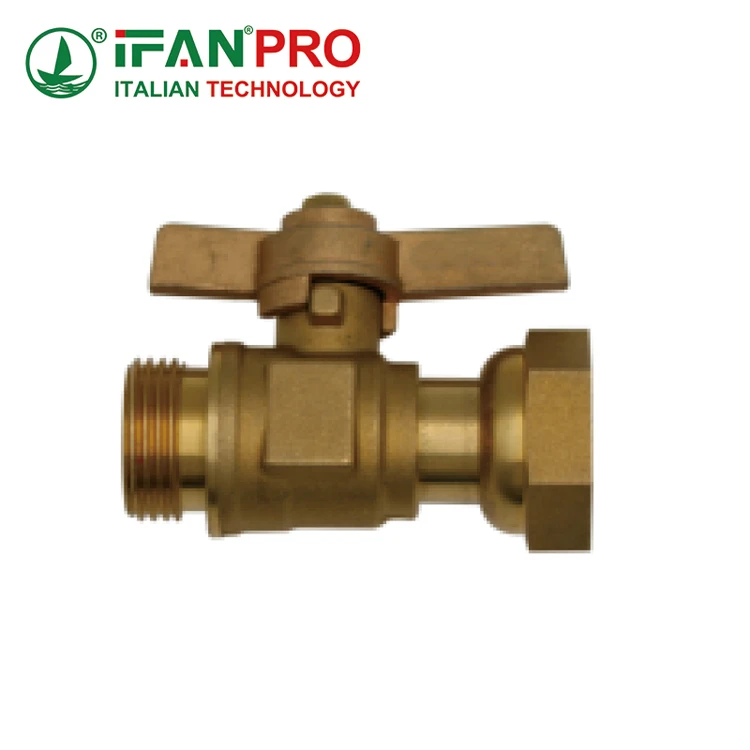Water meter valves control flow and enable maintenance in plumbing systems. Choosing the right valve ensures reliable water management and prevents costly repairs. This guide helps you order quality water meter valves with confidence.
Understanding Water Meter Valve Types
Ball valves offer excellent durability and quick shutoff capabilities. Gate valves provide smooth flow control with minimal pressure drop. Globe valves excel in throttling applications where precise flow control matters.
Butterfly valves work well for large diameter pipes. They cost less than other options. Check valves prevent backflow automatically.
Key Specifications to Consider
Pipe Size Compatibility Measure your pipe diameter accurately. Standard sizes range from ½ inch to 12 inches. Metric sizes are also available for international projects.
Pressure Rating Residential systems typically require 150 PSI rating. Commercial applications may need 300 PSI or higher. Industrial systems often demand 600+ PSI ratings.
Material Selection Brass valves resist corrosion effectively. Stainless steel handles harsh chemicals. PVC works for cold water applications. Bronze suits marine environments.
Connection Type Threaded connections work for most residential projects. Flanged connections suit larger commercial systems. Compression fittings enable easy installation.
Quality Indicators to Look For
Certified manufacturers follow industry standards. ISO 9001 certification indicates quality management systems. NSF certification ensures drinking water safety.
Construction Quality Signs:
- Smooth operation without binding
- Solid feel without wobble
- Clear markings and specifications
- Proper packaging and documentation
Steps to Order Your Water Meter Valve
Step 1: Measure Your System Record pipe diameter, thread type, and installation space. Take photos of the existing setup. Note any special requirements like orientation or accessibility needs.
Step 2: Determine Operating Conditions Check water pressure in your system. Identify temperature range requirements. Consider chemical compatibility if applicable.
Step 3: Choose Your Specifications Select appropriate valve type based on your needs. Pick materials suitable for your environment. Confirm pressure and temperature ratings.
Step 4: Contact Suppliers Request detailed specifications from manufacturers. Ask for certifications and test reports. Compare pricing from multiple sources.
Step 5: Place Your Order Provide complete technical specifications. Confirm delivery timeline and shipping method. Request installation instructions if needed.

Working with Custom Manufacturers
Custom manufacturers offer tailored solutions for unique applications. They can modify standard designs to meet specific requirements. This approach works well for unusual pipe sizes or special materials.
Benefits of Custom Manufacturing:
- Exact fit for your application
- Specialized materials available
- Technical support throughout the process
- Quality control for your specifications
Provide detailed drawings when requesting custom valves. Include all dimensions, materials, and performance requirements. Ask for prototypes before full production runs.
Installation and Maintenance Tips
Install valves with proper support to prevent stress. Use appropriate sealants for threaded connections. Test operation before completing the installation.
Regular maintenance extends valve life significantly. Inspect for leaks quarterly. Exercise valves monthly to prevent seizing. Replace worn components promptly.
Cost Considerations
Quality valves cost more initially but provide better long-term value. Factor in installation costs, maintenance requirements, and expected lifespan. Cheap valves often fail prematurely, creating expensive emergencies.
Budget Planning Tips:
- Compare total cost of ownership
- Consider maintenance requirements
- Factor in replacement frequency
- Account for emergency repair costs
Common Ordering Mistakes to Avoid
Wrong size selection causes installation problems. Inadequate pressure rating leads to valve failure. Incompatible materials result in corrosion issues.
Always verify specifications before ordering. Double-check measurements and requirements. Consult with technical experts when uncertain.
Finding Reliable Suppliers
Established manufacturers offer consistent quality and support. Look for companies with extensive product lines and technical expertise. Check customer reviews and industry reputation.
Supplier Evaluation Criteria:
- Manufacturing experience
- Quality certifications
- Technical support availability
- Delivery reliability
- After-sales service
Conclusion
Ordering quality water meter valves requires careful specification and supplier selection. Focus on proper sizing, material compatibility, and pressure ratings. Work with experienced manufacturers who provide technical support and quality assurance.
Take time to understand your system requirements completely. Compare options thoroughly before making decisions. Invest in quality products that deliver reliable long-term performance.
Ready to order your water meter valves? Contact experienced manufacturers who specialize in pipeline products and custom solutions. Professional guidance ensures you get exactly what your system needs.













Recent Comments